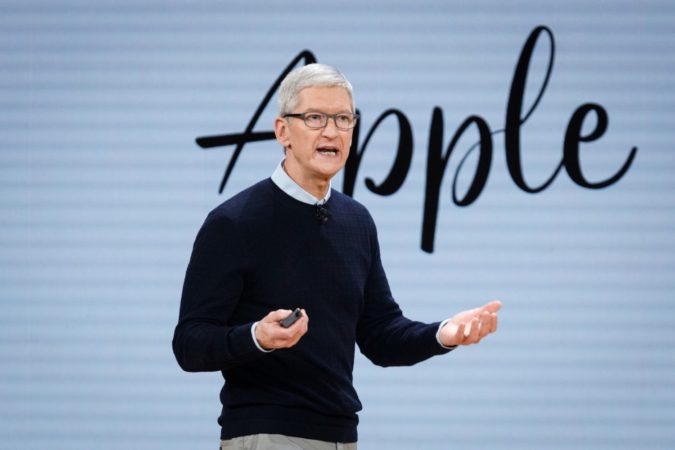What’s in a word? ‘Metaverse’ jargon breeds confusion

Blockchain, crypto, NFT, web3 and metaverse. To outsiders — or “normies” — these words can frequently provoke puzzlement, a furrowed brow and a one-word response: “Huh?”
But to many of the companies, executives and creators investing thousands of hours and billions of dollars into the next era of digital connectivity, the terms and phrases are important.
The word “metaverse” has become particularly significant because it’s evolved into a catch-all term that brings together all the bits and pieces that will define the future of the world online. There’s been a lot of hype, though, and some meta-thought leaders are already wondering if the term should be retired despite only having entered the zeitgeist roughly a year ago, at the height of a pandemic-fueled crypto summer that has now given way to a post-FTX ice age.
“At some point last year … it went from cool to use the word ‘metaverse’ to suddenly it had kind of jumped the shark and was suddenly uncool to use the word,” said Patrick Costello, a business development executive at Qualcomm who spoke at a metaverse-themed CES panel in Las Vegas this week.
That hasn’t stopped the company from building key components for augmented-reality (AR) glasses, a device Costello said he is confident will become a popular way for people to enter the metaverse. Apple, the world’s richest device maker, is expected to start selling pairs of high-end mixed reality goggles later this year that will likely include AR and virtual-reality capabilities.

John Gress Media Inc / Shutterstock.com
Apple CEO Tim Cook.
Metaverse plus blockchain confusion
Explaining the metaverse can become a bit harder to do, especially to neophytes, when the discussion turns to talk about how blockchain technologies like cryptocurrency, tokens and NFTs will play a vital role in the construction of this new semi-virtual world.
Adding to the confusion is the fact that the terms “metaverse” and “web3” are sometimes used interchangeably, despite many who believe that web3 stands simply for a blockchain-powered, decentralized internet and not necessarily virtual worlds or people using augmented reality.
All this can amount to a deterrent for mainstream consumers who have never bought crypto, an NFT or played a blockchain-enabled video game, and the language already appears to be shifting in response.
Social media network Reddit launched one of the year’s most successful NFT collections of 2022, with millions of unique Reddit profile avatars created. It was heralded as a success, as it appeared many people who signed up to receive one of these NFTs had done so for the first time. But Reddit didn’t label them NFTs, calling them “Collectible Avatars» instead.
Terminology vs. reality
“I’m fairly negative on the terminology of the metaverse,” ViacomCBS Futurist Ted Schilowitz said during the same CES panel. “I think it has outpaced the functionality, usability, desirability of the term and I think our friend Neal Stephenson would agree.”
Stephenson famously coined the term “metaverse” in his 1992 science-fiction novel “Snow Crash.” In the book, people interact with one another in a vast virtual-reality world called the metaverse.
“When the terminology starts to replace the reality of what’s going on, so all these people glom onto it, and there is all the profiteering … I don’t want to talk about the metaverse,” said Schilowitz. “I want to talk about the things that relate to how technology propels forward constantly.”
A Meta image problem
Charlie Fink, the metaverse consultant and columnist moderating the panel offered a theory on the declining popularity of metaverse as a defining term.
“In October of 2021, Meta made this momentous announcement and they changed their name from Facebook to Meta, thereby appropriating the metaverse, which is part of the problem,” Fink said. “Meta has had its own struggles, which has kind of dragged the metaverse down.”

Source: Meta presentation screenshot
Meta company presentation screenshot of CEO Mark Zuckerberg.
Meta CEO Mark Zuckerberg — who morphed from technology billionaire wunderkind after creating Facebook to something akin to a Public Enemy No. 1 for many amid headlines that included the Cambridge Analytica scandal — helped introduce metaverse to the mainstream when he changed his company’s name to Meta. Since then, Zuckerberg has not only struggled to get many people excited about his version of the metaverse, he also said Meta will lose tens of billions of dollars while attempting to build it.
But not all is lost, and there are still plenty of believers in the current nomenclature — even though a mass market metaverse may still be years away. Although the term lost out to «goblin mode» as Oxford’s Word of the Year of 2022, it still came in second, with the dictionary saying the word «is particularly pertinent to debates about the ethics and feasibility of an entirely online future.»
“I will continue to unapologetically use the word,” said Qualcomm’s Costello. “My point of view is it’s just a convenient word that we can use to all talk about the same thing.”






 Bitcoin
Bitcoin  Ethereum
Ethereum  Tether
Tether  USDC
USDC  TRON
TRON  Dogecoin
Dogecoin  Cardano
Cardano  Bitcoin Cash
Bitcoin Cash  Chainlink
Chainlink  Monero
Monero  LEO Token
LEO Token  Stellar
Stellar  Zcash
Zcash  Litecoin
Litecoin  Hedera
Hedera  Dai
Dai  Cronos
Cronos  Tether Gold
Tether Gold  OKB
OKB  Ethereum Classic
Ethereum Classic  KuCoin
KuCoin  Gate
Gate  Algorand
Algorand  Cosmos Hub
Cosmos Hub  VeChain
VeChain  TrueUSD
TrueUSD  Tezos
Tezos  Dash
Dash  Stacks
Stacks  IOTA
IOTA  Basic Attention
Basic Attention  Theta Network
Theta Network  Decred
Decred  NEO
NEO  Synthetix
Synthetix  Qtum
Qtum  Ravencoin
Ravencoin  DigiByte
DigiByte  0x Protocol
0x Protocol  Nano
Nano  Zilliqa
Zilliqa  Holo
Holo  Siacoin
Siacoin  Numeraire
Numeraire  Waves
Waves  BUSD
BUSD  Status
Status  Pax Dollar
Pax Dollar  Enjin Coin
Enjin Coin  Ontology
Ontology  Hive
Hive  Lisk
Lisk  Steem
Steem  Huobi
Huobi  NEM
NEM  OMG Network
OMG Network  Bitcoin Gold
Bitcoin Gold  Augur
Augur  Ren
Ren  HUSD
HUSD